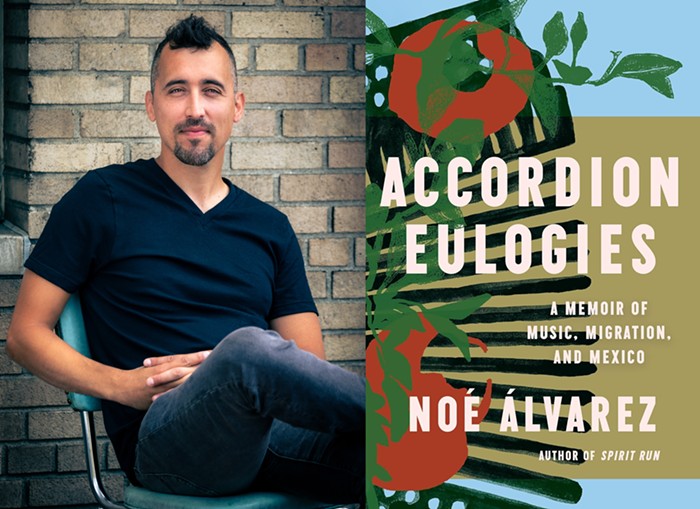
This one's for all you lovebirds out there who decide to tie the knot despite your aversion to being (emotionally) tied down, and despite your deep understanding of the fact that we all die alone.
You can find Heather McHugh's "Connubial" in Hinge & Sign: Poems, 1968-1993, which is available in local bookstores, and also in a Google Books preview (scroll down to pg 33—it takes a little while, but it's worth it).
A few notes:
• First off, full disclosure: McHugh was one of my poetry teachers at the University of Washington, and I agree with the MacArthur Foundation's (and The Stranger's) classification of her work.
• The word "connubial" just means "related to marriage."
• The poem is as dense with meaning as it is with music, which means you have to read it five or ten times at a regular speed before you get it. I read this poem at a wedding like 10 years ago and even then I didn't really get what the first few stanzas were doing, but now I think I maybe do.
• The first part of the poem conflates the speaker's spirit with the qualities of a dream. As the speaker explains, "Before I had / an other at my side / there was no side." Like a "matterless" dream, she was floating around life, dipping and swerving, and perhaps even ignoring a few laws here and there. It was all pretty fun, of course, but without somebody else it all felt a little empty, or "matterless." Then this "other" came along, and this other's mere presence became her "bounds and bearings." Her partner's touch becomes "a couch," a place to rest from all the swerving, which is nice, and even worth the risk of couch-lock.
• After this sweet admission, the speaker then starts to argue with herself. First, she dismisses the lovely-dovey crap in the first section "(Blind comfort, maybe, keeping / terrifying lights away ..." But then, over the course of my favorite lines in the poem, she changes her tune and takes seriously again the pain of living life alone while also acknowledging that we're all fundamentally alone while also (humorously and I think somewhat profoundly) finding some evidence on her own body that supports the argument for pairing up: "But one is one’s / own zero, hole through which the all / can plunge appallingly. I’m not / cut out for it—not yet— // by mind and hand I’m given to / symmetrical identities, or / solitudes of two.)" Like our hands and the halves of our brain, we couple but remain apart. But so what? She's given to it. And if it turns out she's ultimately just settling, then "so be it." After all, "Loving's limited; / Its singularity is all reprise. You save me from, not for, eternities."
• Those last lines are so dense and funny and good. I love how she describes love as a limited and limiting thing (because you gotta draw the line somewhere) and then immediately describes it in terms of limitlessness, highlighting the paradox she's still struggling with. ("Its singularity is all reprise"—that is, everyone's love is the same love, and it's just the same feeling or expression over and over again.) And I love how she finds comfort (or maybe a "couch," if you will) not in love's endlessness but in the bounds love places on time. Loving someone "forever," as the greeting cards demand we do, sounds horrible because "forever" sounds horrible, or at least "matterless." But loving someone on earth, and now? That's water breaking a fall, that's day breaking night. That's something we can do.
• As a final note, the poem is "about" what happens when two people get together, and so it makes sense for McHugh to break the poem into two parts and stuff the language with as many doubles and pairs and duos as she can. Since I again got a little bit of a late start on this column, I haven't worked out the exact internal and external rhyme scheme, but it's there. Look at all those words that sound the same right next to one another: "it dips," "universes swerve," "being, beating,"—and then all those "ou" words in the sixth stanza: "bounds, touch, couch, about."



















